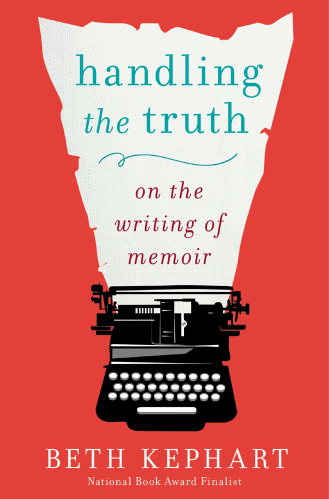
Handling the Truth
On the Writing of Memoir
کتاب های مرتبط
- اطلاعات
- نقد و بررسی
- دیدگاه کاربران
نقد و بررسی

Starred review from June 15, 2013
A self-described "memoir autodidact" and distinguished author's refreshingly idiosyncratic guide to the art of creative nonfiction. National Book Award finalist Kephart (Small Damages, 2012, etc.) began her literary career writing "from the margins." This book, which grew out of creative nonfiction classes she taught at the University of Pennsylvania, is not only about "the making of memoir and its consequences," but also "its privileges and pleasures." Though firmly rooted in personal experience, memoir is not an exercise in narcissism. As Kephart shows through examples from writers such as Michael Ondaatje and Annie Dillard, it is a process by which "memoirists open themselves up to self-discovery and...make themselves vulnerable." Those interested in writing creative nonfiction must actively read it so that they can begin to know not only what moves them, but what goals to set for themselves in their own work. In setting out to actually write a memoir, Kephart advises writers to start small, using notes on and photographs of everyday life to start, while mining sensory details, situations and landscapes for meaning and metaphor. Awareness of what is at stake, not just for themselves and those whom they portray, but also for their readers, is also crucial. For Kephart, memoir is an act that brings a single person closer to the "us" of collective human experience. In the process of self-discovery--and like the Penn students from whose work she quotes liberally throughout--memoirists must also learn to ask the right questions about the past and about life itself. Perhaps most importantly of all, though, they must remember the things they love. Only then will they find their own authentic way of writing "toward the truth." Generous, intelligent and genuinely insightful.
COPYRIGHT(2013) Kirkus Reviews, ALL RIGHTS RESERVED.

Starred review from May 15, 2013
National Book Award finalist for A Slant of Sun, one of her several memoirs, Kephart (creative nonfiction, Univ. of Pennsylvania) has composed a gorgeous meditation on memoir. The author has achieved what few do in the crowded field of writing guides: she has created a work of art simply by reflecting on her own art--the writing and teaching of memoir. In four eloquent parts, Kephart introduces readers to the basic principles of memoir construction, suggests many writing prompts for navigating memories, and discusses the issues of describing living relatives and friends and of striving for accuracy. The book's highest value lies in the author's long experience with the memoir genre and its students. She writes with the same lyricism found in her own works and offers here passionate encouragement for would-be memoir writers to embrace truth and empathy, mystery and exploration. Drawing from classroom and personal examples, Kephart introduces readers to the delicate balance that creates the most honest and accomplished memoirs. An appendix of suggested memoirs for reading, grouped by category with generous annotations, is included. VERDICT Highly recommended for anyone interested in the anatomy of a successful memoir and for all writers of literary nonfiction.--Stacey Rae Brownlie, Harrisburg Area Community Coll. Lib., Lancaster, PA
Copyright 2013 Library Journal, LLC Used with permission.

August 1, 2013
National Book Award finalist Kephart, who has written several memoirs and teaches a college course on the subject, offers an exploration of the genre that is informative and enjoyable. Drawing on the work of dozens of great authors (Annie Dillard, Mary Karr, Jeanette Winterson) as well as student comments, Kephart dives deeply into all that memoir can offer writers while acknowledging the pitfalls of oversharing and naming high-profile memoir abusers. Her insights are thoughtful and erudite. Real writers, she says, do not write to trump or abolish. They write . . . to rumble or howl, or because language is salvation or because they've been alive or because they have survived. As instructive as Kephart's book is, it is not a how-to but rather a careful argument for the value of memoir, a form that allows writers to know themselves and readers to join them in the journey. Intense, provocative, endearing, and kind, Handling the Truth recalls Anne Lamott's Bird by Bird (1995). The appendix alone is a reading course not to be missed. Delightful.(Reprinted with permission of Booklist, copyright 2013, American Library Association.)

























دیدگاه کاربران